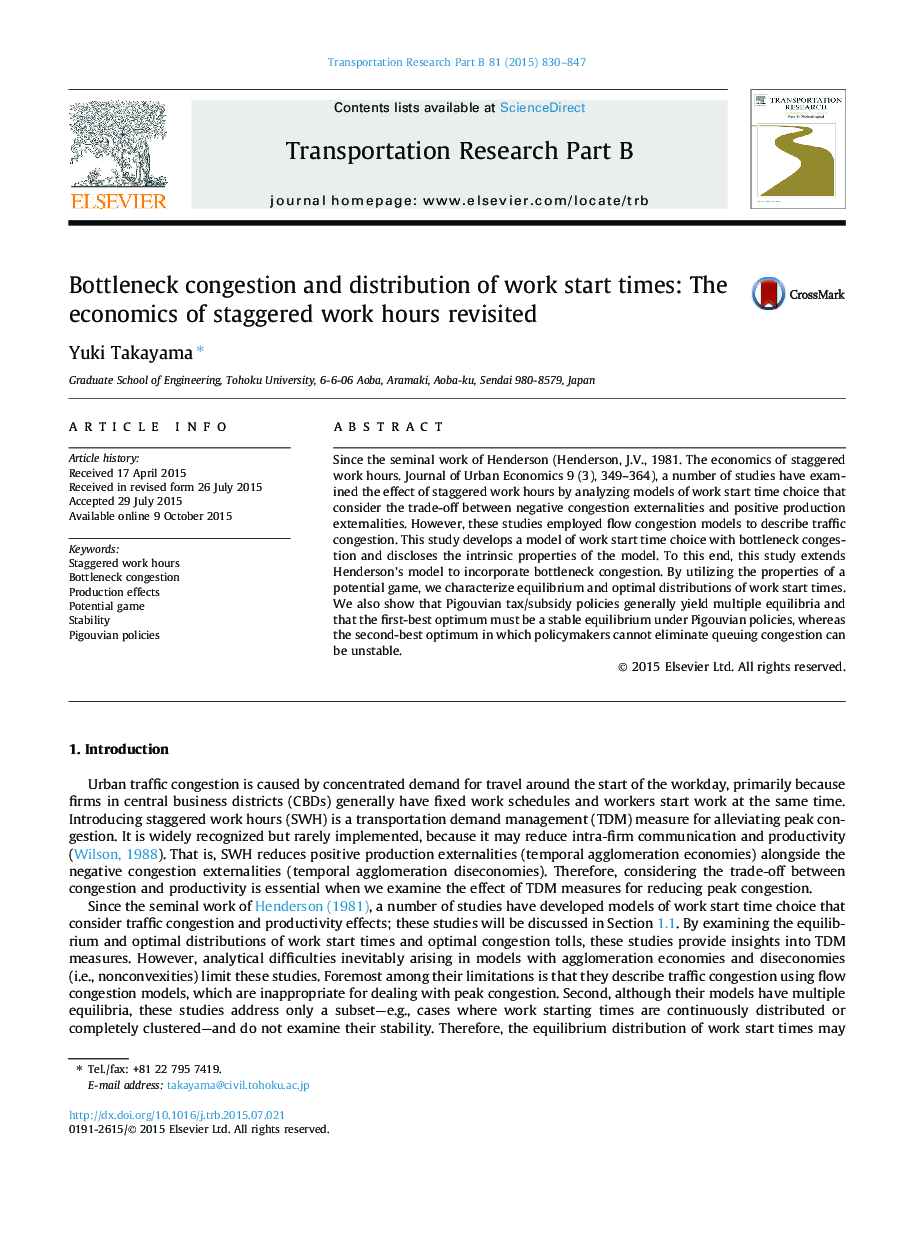| Article ID | Journal | Published Year | Pages | File Type |
|---|---|---|---|---|
| 1131741 | Transportation Research Part B: Methodological | 2015 | 18 Pages |
•We develop a model of work start time choice with bottleneck congestion.•By utilizing the properties of a potential game, we characterize equilibrium and optimal distributions of work start times.•We show that Pigouvian tax/subsidy policies can be ineffective for achieving an optimum.
Since the seminal work of Henderson (Henderson, J.V., 1981. The economics of staggered work hours. Journal of Urban Economics 9 (3), 349–364), a number of studies have examined the effect of staggered work hours by analyzing models of work start time choice that consider the trade-off between negative congestion externalities and positive production externalities. However, these studies employed flow congestion models to describe traffic congestion. This study develops a model of work start time choice with bottleneck congestion and discloses the intrinsic properties of the model. To this end, this study extends Henderson’s model to incorporate bottleneck congestion. By utilizing the properties of a potential game, we characterize equilibrium and optimal distributions of work start times. We also show that Pigouvian tax/subsidy policies generally yield multiple equilibria and that the first-best optimum must be a stable equilibrium under Pigouvian policies, whereas the second-best optimum in which policymakers cannot eliminate queuing congestion can be unstable.
